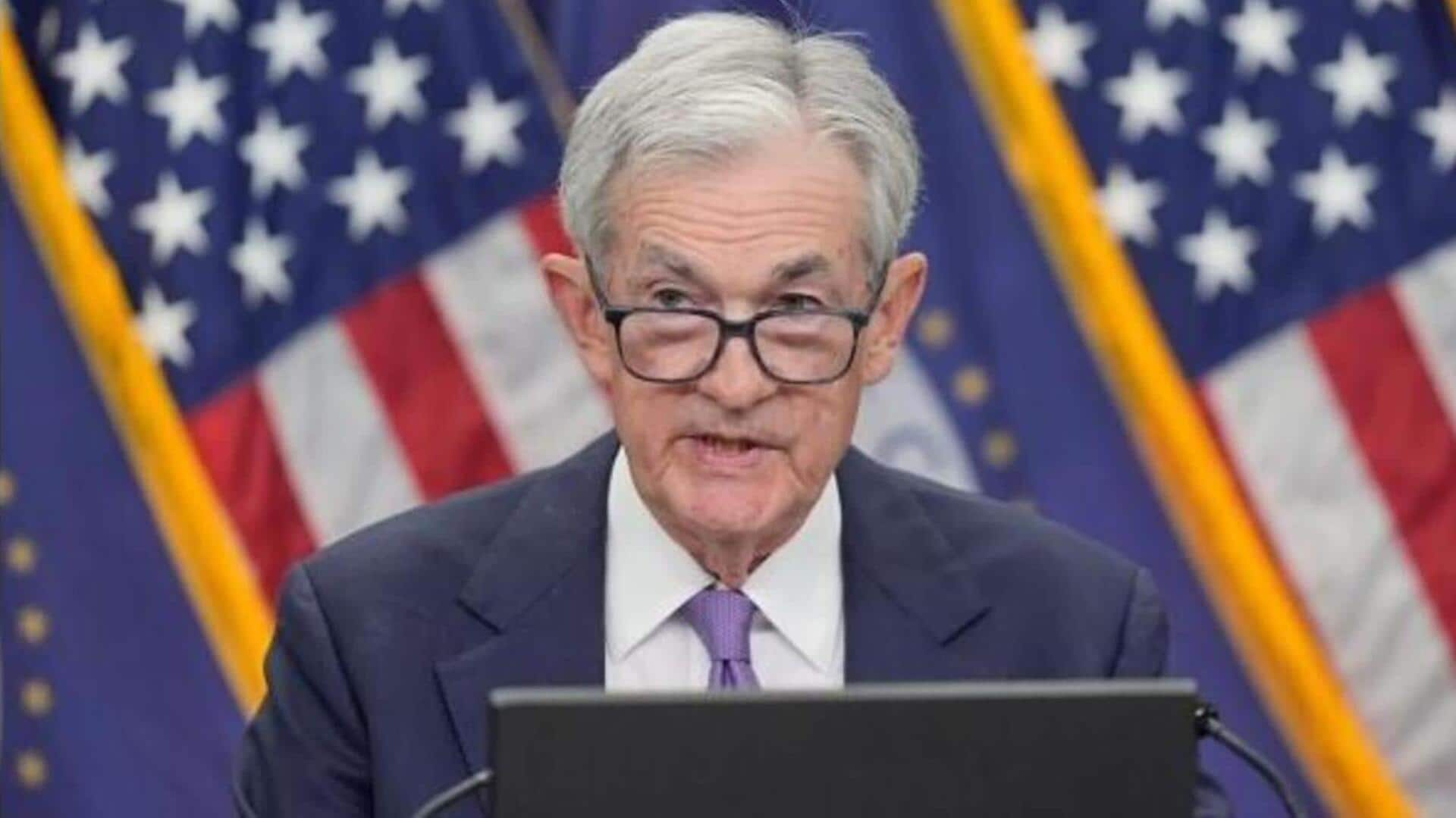
Federal Reserve cuts interest rates as US economy faces uncertainties
What's the story
The US Federal Reserve has cut its key interest rate for the second time this year, in a bid to stimulate economic activity and revive a sluggish labor market. The decision comes amid fears of persistent inflation. The US central bank as lowered its key lending rate by 0.25 percentage points, putting it in a range of 3.75% to 4%. The Fed's policy-setting committee is divided over the move, with Chair Jerome Powell warning of the complex challenges ahead.
Economic analogy
Powell likens economic situation to 'driving in the fog'
At a press conference after the Fed's announcement, Powell compared the current economic situation to "driving in the fog." He said, "What do you do if you're driving in the fog? You slow down." The rate cut could provide financial relief by lowering borrowing costs for consumers and businesses. However, it also poses risks as inflation continues to rise.
Rate impact
Rate cut could provide financial relief
The Fed's decision is aimed at reducing borrowing costs across the economy. A lower rate usually has an immediate impact on auto loans and credit cards, while mortgage rates may also follow suit. However, Powell cautioned that the ongoing government shutdown could weigh on economic activity as it drags on. He said its effects would likely reverse once it ends.
Future outlook
Fed's next rate decision due on December 10
The Fed's next rate decision is due on December 10. While investors expect another quarter-point cut, Powell said there were "strongly differing views" about the Fed's next move. He stressed that a further reduction at the December meeting "is not a forgone conclusion." Despite economic uncertainties, stock markets have reached record highs, largely due to an AI investment boom.
Policy challenge
Fed faces dilemma as inflation remains stubborn
The Fed faces a dilemma as data shows a weakening labor market and stubborn price growth. Economists say lower interest rates can sometimes worsen inflation by increasing overall economic activity. Powell acknowledged risks, especially from President Donald Trump's tariffs, that could push inflation higher. Last week, the Bureau of Labor Statistics reported an annual inflation rate of 3% in September—well above the Fed's 2% target.